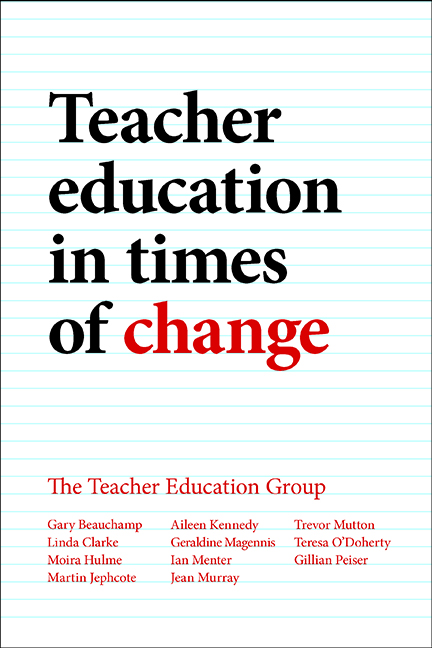Book contents
thirteen - Insights from the five nations and implications for the future
Published online by Cambridge University Press: 23 August 2022
Summary
Introduction
In this final chapter we review all of the earlier work and ask what lessons may be drawn from the cases and themes that have been discussed. In particular, consideration is given to the respective evidence for convergence and/or divergence in teacher education policy across the five jurisdictions. The influence of globalisation and the significance of wider social and political change are also reviewed.
A sociocultural and historical perspective is adopted to review these questions, so that questions about national identity, the positioning of education systems as ‘nation builders’ and the particular role of teachers within these processes are critically examined. This raises issues of values, citizenship and democracy.
The final section considers possible scenarios for the future – as schooling changes its shape and organisation, how will the education and preparation of teachers need to respond?
Convergence or divergence?
Our analysis here indicates some policy convergence, particularly across Scotland, Northern Ireland and the Republic of Ireland (RoI), all of which seem to be following Continental European models of teacher education at least in part. Policy in Wales, where initial teacher education (ITE) provision followed English models closely until after devolution in 1999, is also increasingly distinctive. England emerges from this analysis as a definite outlier in terms of its ‘marketised’ and increasingly school-led system, although as we indicate later in this chapter, there may be dangers to arguing for English ‘exceptionalism’ in this way.
The ‘practice turn’ (Reid, J., 2011) in teacher education, found in many international policies in the last decade, has played out differently across the five nations. As discussed in several chapters here, especially Eleven and Twelve, common trends are to place more emphasis on ‘practical’ and ‘relevant’ aspects of ITE, particularly the practicum, but the discourses and practices in use here vary considerably. As Beauchamp et al (2013) identify, the language and rhetoric employed to discuss ‘relevance’, for example, reflect differing views of teaching and teacher education. In England, the ‘turn to the practical’ (Furlong and Lawn, 2010, p 6, quoting Hoyle, 1982) has seen the re-emergence of simplified craft models of teaching in which expertise can be acquired through apprenticeship modes of learning in the school workplace.
- Type
- Chapter
- Information
- Teacher Education in Times of ChangeResponding to challenges across the UK and Ireland, pp. 219 - 234Publisher: Bristol University PressPrint publication year: 2015

